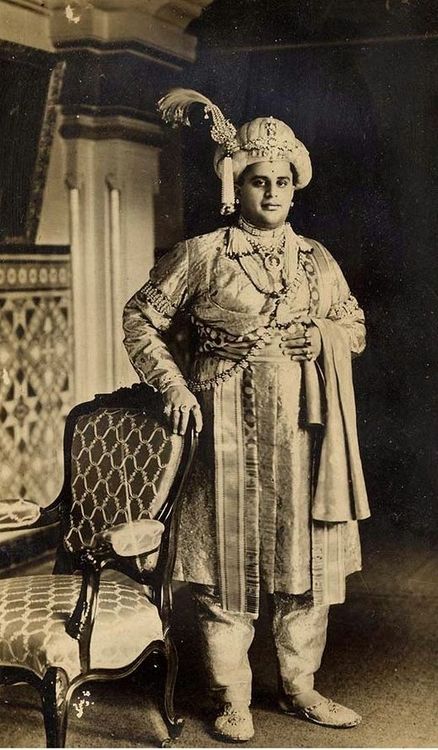For smooth Ad free experience
For smooth Ad free experience
It is a privilege to be born into a family that wields absolute power. But it is a matter of pride to use that power to create good and progress in better ways.

Died on 23rd September 1974
He graduated from the Maharaja's College in Mysore in 1938. After the sudden death of his father- Yuvaraja Kanteerava Narasimharaja Wadiyar, and his uncle- Maharaja Krishnarajendra Wadiyar IV, Jayachamarajendra Wadiyar had to accede to the throne at the mere age of 21.
Groomed to be the future King of Mysore- a role that he fulfilled with utmost grace and humility, Maharaja Jayachamarajendra Wadiyar became a celebrated figure across the world. When he became the 25th ruler of the princely state of Mysore, he gave impetus to education, culture and funded various scholarly and musical endeavors.
The Maharaja was active in sports and showed a keen interest in tennis and horseriding. It was due to the Maharaja's efforts that Ramanathan Krishnan was able to participate in the Wimbledon. His daughter, Meenakshi Devi, recounts that her father never discriminated between his children. He made sure they learned horseriding and took them out hunting while it was still permitted.
However, it is no secret that the Maharaja's true love was music. His love for music transcended boundaries, and he appreciated both- Western as well as Carnatic music. Had it not been for the Maharaja, the Western world would not have known so much about Russian music.
Nikolai Medtner's music compositions were financed by the Maharaja. And Medtner dedicated his third piano concert to him.
When the world was still recovering its spirits from the horrors of the second world war, Walter Legge and the Maharaja J.C Wadiyar resuscitated the philharmonic spirits- leading to the series of the ‘Mysore Concerts’.
Thanks to the Maharaja's refined taste in music and his fresh critical perspectives, the best musicians presented their compositions for the world to hear. His generosity and enterprise revolutionized European Art Music. Balakirev’s First Symphony and Roussel’s Fourth Symphony were brought to life.
J.C Wadiyar was proficient in playing the Veena and inspired by the tutelage of his masters, he composed 94 Carnatic krutis. The compositions flowed with innovation, visible in his raga Shivakambodi.
Aside from his contributions to the musical world, the Maharaja was a prolific scholar and promoted the study of history along scientific and modern lines. Upon realizing the meager presence of Sanskrit literature in Kannada, he sponsored the translation of Sanskrit texts into the Kannada language to be made accessible to people.
A progressive and liberal-minded individual, he facilitated the setting up of the Hindustan Aircraft Ltd. in 1940. Even though he moved towards the path of modernity, Mysore never lost its ancient charm.
In 1947, he became the first ruler to sign the Instrument of Accession and merge the Princely state of Mysore with India. He transitioned from monarchy to democracy- as per the wishes of his subjects, relinquishing all powers bestowed upon him since birth.
Though he died on 23rd September 1974, at 55 years, he is still remembered for his largesse, progressiveness, and appreciation for all things that add value to life. As the Kannada poet Kvempu said,
"Every monarch in history has become king ascending thrones, while he became the greatest king descending one."
Maharaja Jayachamarajendra Wadiyar will always be known for his extraordinary ability to be human.
0
You might be interested in reading more from
